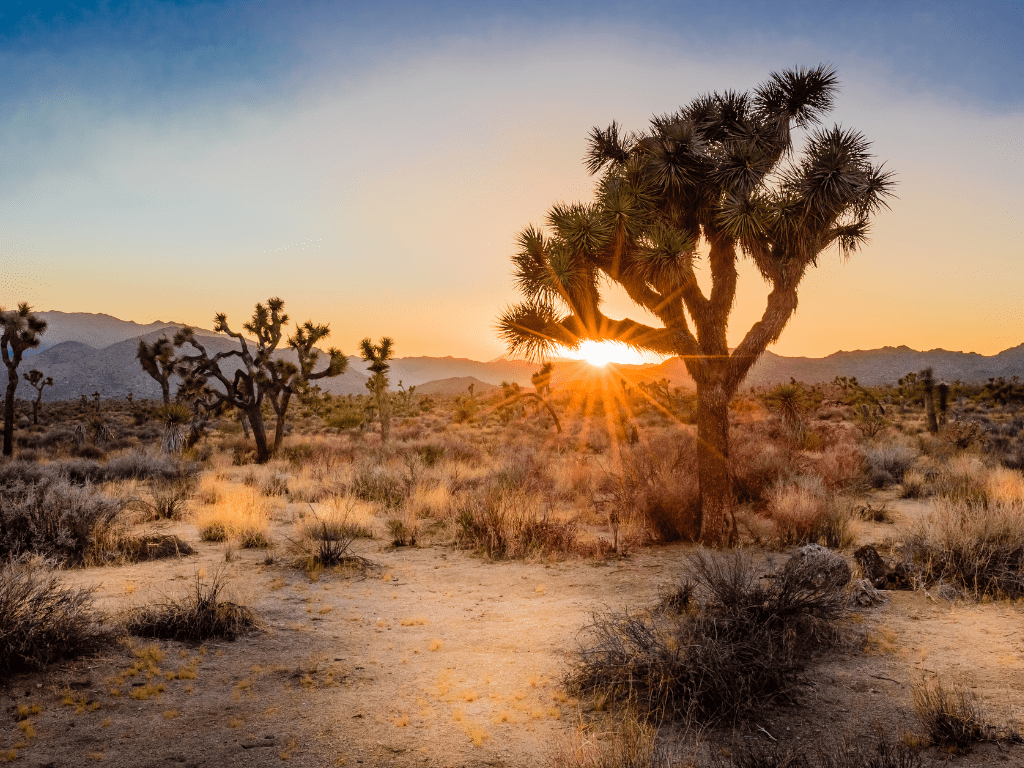Current work in wildlife, rivers, public lands, and climate
Press Releases
Guardians launches lawsuit to continue fight to protect climate-threatened Joshua trees
“We are, unfortunately, once again forced to pursue litigation because the Fish and Wildlife Service continues to ignore not some but all of the climate science showing that the Joshua tree is heading toward extinction,” said Lindsay Larris, wildlife program director at WildEarth Guardians. “We would be much happier if the federal government spent taxpayer dollars to list species and develop plans for recovery in light of climate change, instead of engaging in multiple rounds of litigation as has been the case with other climate-imperiled species like the wolverine, Canada lynx, and cold-water dependent fish.”
U.S. Fish and Wildlife Service issued its March 2023 decision after a federal district court ruled, in 2021, that the agency violated the Endangered Species Act in multiple respects when it denied protection for the Joshua tree the first time in 2019. This case stemmed from a lawsuit filed by WildEarth Guardians who had also originally petitioned to list the Joshua tree as “threatened” in 2015. As part of its ruling, the court directed the Service to issue a new decision that accounts for all the climate change science it unreasonably disregarded, including several peer-reviewed, published models that all show the species will be functionally extinct in up to 99.8% of its current range by century’s end.
Despite the federal court’s 2021 ruling admonishing the Service for ignoring the dire predictions of these climate models, the agency did so once again in its March 2023 decision. The Service refused to list the Joshua tree as “threatened” under the Endangered Species Act due in part to what the agency insisted were high degrees of uncertainty about the impact of climate change on the future viability of the species. Notably, in its determination the Service continued to insist upon a greater level of scientific certainty than has been achieved in the field to date, contrary to the language of the ESA.
“The Service knows the Mojave is projected to undergo profound transformations in the coming decades, but it seems the agency would rather bury its head in the increasingly scorching hot desert sand than start tackling a climate adaptation and recovery plan for the Joshua tree,” said Jennifer Schwartz, staff attorney at WildEarth Guardians.
Case in point, the Notice of Intent letter comes as the York Fire – already California’s largest fire of the year, spreading across more than 82,000 acres– is ravishing the Mojave Desert, threatening to burn potentially millions of Joshua trees in California and Nevada before it is contained. In August 2020, the Cima Dome fire burned nearly 44,000 acres of desert, killing 1.3 million Joshua trees, and leaving behind what the National Park Service described as a “graveyard of Joshua tree skeletons.”
“It’s heartbreaking to see another massive fire threatening to decimate Joshua tree populations in the desert, leaving behind areas in which Joshua trees will face significant struggles to reproduce,” said Larris. “We are seeing the climate model predictions of more intense, more frequent fire seasons playing out in the Mojave Desert, yet the Service refuses to acknowledge this as a real threat to Joshua trees’ survival. While a March listing decision would not have prevented this fire, it could have provided critical resources to mitigate against future fires in this region that are certain to keep destroying Joshua trees absent any federal intervention.”
In addition to claiming end-of-century projections for the species are still too uncertain to warrant federal protections, the Service also doubled down on its flawed logic of fixating on the currently broad distribution of adult Joshua trees across the range. As Joshua trees live on average about 150 years, many of these adult trees established before climate change began adversely affecting the species’ ability to successfully reproduce.
“As our federal courts have aptly observed, the ESA is concerned with protecting the future of species as a whole, not merely individual members alive today,” said Schwartz. “Here, the science shows that climate change is already preventing adult Joshua trees from replacing themselves in the hottest and driest portions of the Mojave and that problem is only going to spread absent some federal intervention.”
WildEarth Guardians’ Notice of Intent follows the enactment of California’s Western Joshua Tree Conservation Act which went into effect on July 1, 2023. This bill requires permits for the killing or removal of trees and for the State of California to create a plan to conserve the species.
“While we are grateful to the State of California for taking some steps to conserve Joshua trees, this Act alone will not protect and recover Joshua trees across their range,” said Larris. “For example, this California state law does nothing to protect the eastern Joshua tree that occupies over 4.9 million acres, including the Mojave National Preserve in southeastern California, parts of southern Nevada, and small portions of southwestern Utah and northwestern Arizona. Biodiversity loss is also a crisis at the national level that merits and requires action by the federal government if we have any hope of conserving species for future generations.”
The Notice of Intent to Sue submitted today starts a 60-day clock for the Service to address its failings before the groups will file a complaint in federal district court.

Joshua trees in the Mojave Desert, Getty Images
###